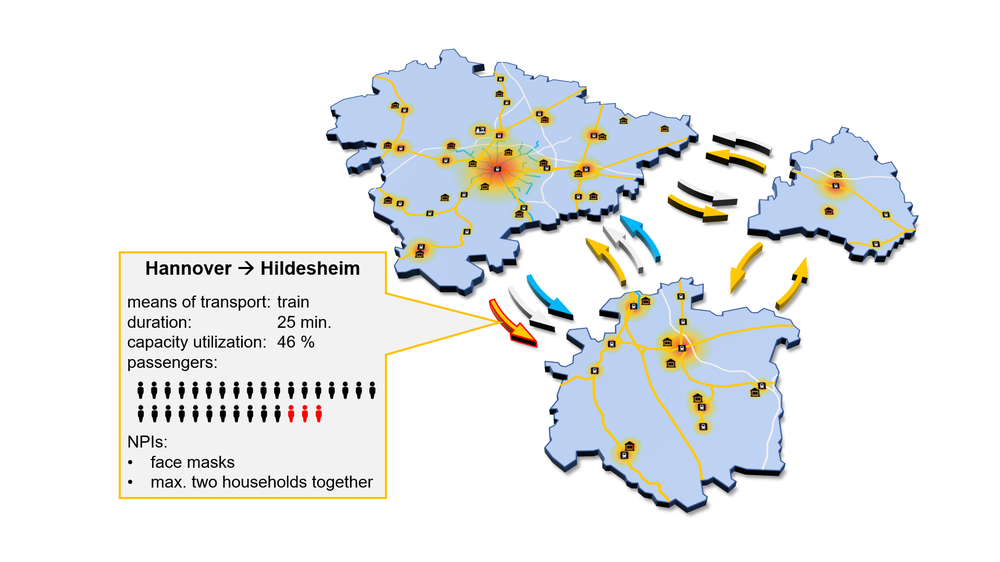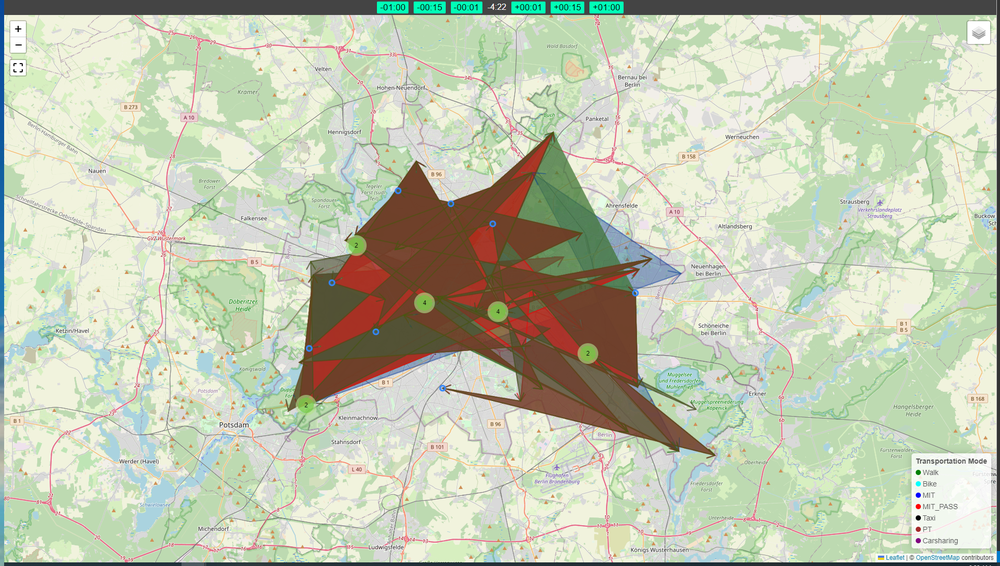PANDEMOS

The Covid 19 pandemic has posed enormous challenges to the world and we must be better prepared for future pandemics. A particular challenge is the preservation of mobility as a social and economic asset in our society. The impact of mobility on the pandemic, taking into account various nonpharmaceutical interventions such as mouth and nose protection, regular testing in public transport or minimum distances, has been insufficiently studied so far. Innovative strategies for local virus containment depending on region, transport mode selection and traffic flows are urgently needed and have to be found by simulation studies.

The aim of the project PANDEMOS (Pandemic Mobility Scenarios) is the development of a software framework with an interactive user interface, which maps infection events depending on mobility. Based on current data from traffic research, social media, epidemiology and virology, nonpharmaceutical interventions are examined for their effect. With the innovative model combination of transport and epidemiology and the broad data basis, differentiated strategies for pandemic control will be developed.

In addition to project management, the Institute of Software Technology is responsible for the mathematical modeling of the infection dynamics, the derivation of mobility from social media, the integration of mobility into the models, and the visualization of the available and calculated data. Mobility events are resolved with different fineness in the simulations, from movements of entire crowds between counties down to the mobility behavior of single individuals. This approach provides the opportunity to achieve a deeper understanding of hotspots, superspreading events, and chains of infection in order to identify effective interventions to break these chains.
Project runtime:
- 10/2021 – 09/2024
Scientific participants:
Publications on this project:
Further information:
- BMDV - Mobilität und Infektionsdynamik – Datengetriebene Simulation zur Eindämmung von Pandemien mit optimierten Verkehrsströmen – PANDEMOS (bund.de) (in German)
- DLR – Optimierung von Verkehrsströmen in Pandemie-Zeiten (in German)
- DLR publishes extensive dataset on microscopic travel chains in the Mobilithek
